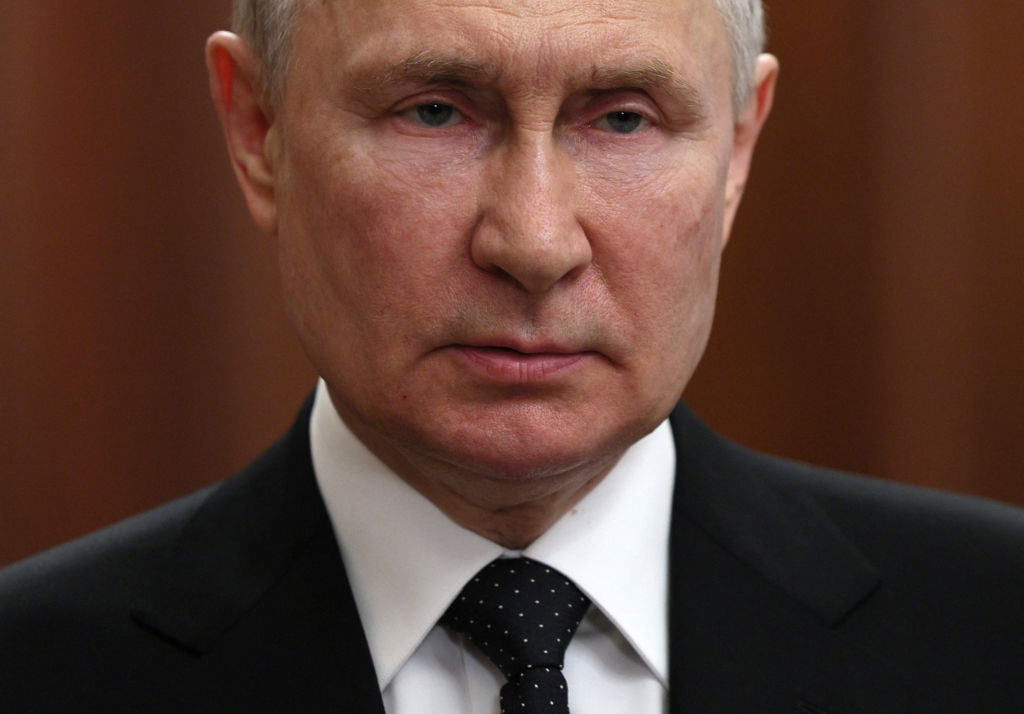
Danish physicist Nils Bohr once said, ‘Prediction is very difficult, especially if it’s about the future.’ The insurrection launched by Wagner boss Yevgeny Prigozhin on Saturday lasted a little over 24 hours. But the serious implications of these events must now be considered, with Vladimir Putin emerging from this extraordinary event much weakened.
Wagner forces moved quickly to secure control over the strategically important city of Rostov-on-Don, and advanced on Voronezh along the M4 highway, with the next stop being Moscow itself.
Prigozhin clearly had the initiative and momentum, with a core of 25,000 troops, and more support flocking to him, as his forces were welcomed into southern Russia.
Then Prigozhin surprisingly accepted a deal with Belarus’s ageing dictator, Alexander Lukashenko, that saw him end his uprising, reverse his advance—which had come to within 200 kilometres of Moscow—and accept exile in Belarus. The insurrection—and with it the immediate risk of military clashes in the streets of Moscow—appeared to be over as quickly as it had begun.
So, what are the implications of the apparent failed insurrection by Prigozhin and, more importantly, what are the potential challenges Putin now faces?
Prigozhin’s fate remains uncertain, but it’s highly unlikely he’ll retire to a villa in Belarus, after challenging Putin’s power by confronting Defence Minister Sergei Shoigu and Chief of the General Staff Valery Gerasimov. It’s more likely that Putin will seek Prigozhin’s demise at some point, especially to prevent him from returning to direct Wagner.
The embattled president will be especially focused on reinforcing his strongman image by eliminating any challenger to his power base—and Prigozhin is certainly in that category.
Wagner looks likely to splinter between those who sign contracts with the Russian Defence Ministry and those who walk away from the group, perhaps to do other mercenary work. That’s probably good news for Ukraine, because it reduces the threat it faces from what’s left of Wagner.
But the main loser—apart from Prigozhin—is Putin himself.
Putin’s image as a strong Russian leader has been weakened dramatically, even though the worst outcome for him—fighting in the streets of Moscow—has been avoided. Under his presidency, a major armed insurrection occurred on Russian territory that looked to be on the verge of achieving success. Combined with the risk of a looming defeat in Ukraine, this has done much to reinforce growing perceptions that Putin’s rule is ending and that he is a much diminished leader. So Putin will be determined to reverse any perception that he is weak.
Some possibilities to watch for include a purge of perceived opponents, especially anyone who was seen to show any support for Prigozhin’s insurrection. That could extend through all levels of Putin’s regime, including into the siloviki and the oligarchs—the elite of the security and intelligence community, and Russia’s super-wealthy business elite, who keep Putin in power in return for economic gain.
Putin may also adopt a tougher approach to the war in Ukraine, perhaps by announcing a national mobilisation, though that could generate more opposition in the streets. The last thing would Putin want is a popular uprising or a whiff of a ‘colour revolution’ immediately after a military insurrection.
Yet Putin’s goal is to wear down Western resolve in supporting Ukraine in a long war, and national mobilisation would give him a much greater chance to achieve that goal.
Expect Putin to amplify his fraudulent narrative that Russia is at war with NATO and Western states, even to the extent of trying to claim the West had organised Prigozhin’s ‘march for justice’, and to ramp up the nationalist diatribe against NATO, which could be accompanied by more provocative behaviour along NATO’s eastern and southern periphery.
It’s also quite likely Putin will rattle nuclear sabres again, having deployed nuclear weapons to Belarus to implicitly threaten use of tactical nuclear weapons against Ukraine or even against NATO. He needs to reinforce his image as the strongman in full control, especially given he knows Beijing is watching closely.
All this probably won’t save him if Russia is ultimately defeated in Ukraine. The insurrection may be over, but it is perhaps best seen as the beginning of the end of the Putin regime.

